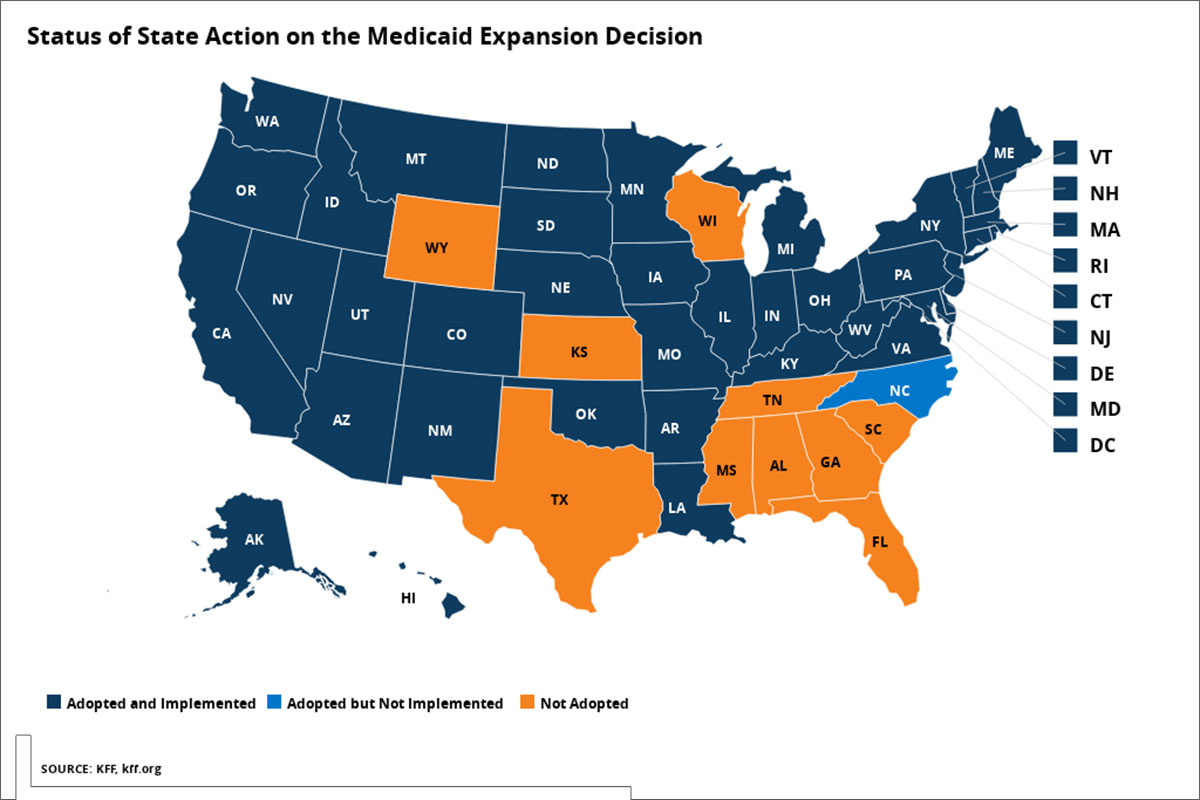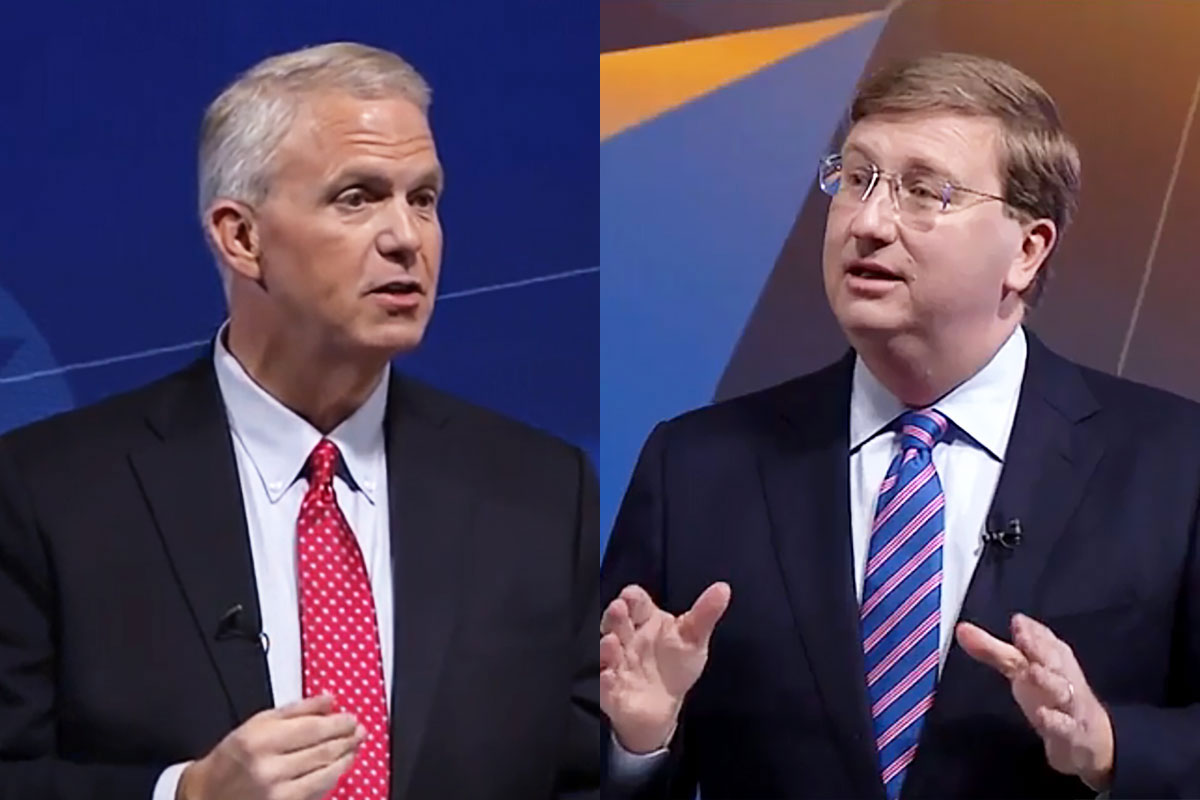Medicaid is a public health-insurance program for Americans with limited income and resources, including eligible low-income adults, children, the elderly, pregnant women and people living with disabilities. The U.S. government and states jointly fund the program. Redeterminations of eligibility are conducted annually, but they were suspended in March 2020 for three years due to the COVID-19 pandemic.
Now, all states are required to resume the process beginning on April 1, 2023. Since then, the Division of Medicaid in Mississippi has secretly commenced a new wave of redeterminations, removing 18,710 children from the program, with more child disenrollments likely to come. Regrettably, some of the affected children may still be eligible. Therefore, Mississippi’s new Medicaid redetermination is evil because it harms children and hurts families.
Without Medicaid, our kids will not have access to the quality medical attention they need. So, when they fall sick, they will likely miss school, get poor grades and drop out of school. Because they will have little or no formal education, they are then confined to doing menial and low-paying entry-level jobs. At the end of the day, they earn little or nothing to take care of themselves and provide for their families, thus breeding a cycle of poverty.
Conversely, children with access to health-care coverage like Medicaid often get quality medical care, do better in school, finish high school, go to college, land decent jobs, earn higher wages and grow up to become healthy adults. As adults, the government will invariably pay less for their health care, and the government will save more.
‘A Significant Misstep For Mississippi’
Mississippi’s new Medicaid redetermination is immoral because it reduces access to medical care for low-income parents. However, its expansion improves access to quality medicine for these parents. As a result, their children’s health and development will also improve. This is because parent-child relationships can significantly influence a child’s brain structure and function. Such relationships can reduce the negative effects of trauma, poverty and other adverse childhood experiences. Maternal depression, for example, can negatively affect the cognitive, social and emotional development of a child as well as their education and employment.

Medicaid opponents like Mississippi Gov. Tate Reeves have always opposed Medicaid expansion, arguing that it is a “bad idea” and makes no sense to them. While they may be right in their own sense, they fail to understand the obvious benefits inherent in Medicaid expansion. Expanding Medicaid will not just benefit children from poor homes and their families, but it will no doubt renew our ailing hospitals.
Mississippi had 73 rural hospitals; six had closed since 2005, while 31 others risked closing down as well due to the severe financial crisis rocking them. If Mississippi expands Medicaid, it could receive up to $1 billion in federal funding, The Commonwealth Fund reports. The federal government would pay 90% of the cost for up to 300,000 new enrollments, while the state would offset the remaining balance of 10%.
But Gov. Tate Reeves disagrees.
Instead, he plans to make hospitals pay higher taxes in order to get more federal Medicaid funding, projecting the amount of revenue to be generated at $689 million if his plans work out well. This money would be shared among hospitals to keep them running optimally, he argues. “This funding will provide a major boost for county hospitals as well as for private institutions,” Reeves once said at a news conference. “And I also want to note that these changes will come at almost no cost to Mississippi taxpayers.”
Despite his impassioned stance on Medicaid expansion, Brandon Presley lost the Mississippi Governor race on Nov. 7, 2023. This result should not distract from the state’s critical issues. Mississippi remains one of the poorest states in the nation, and the strategy of terminating Medicaid coverage for children during redeterminations to curb spending is a troubling decision. It appears to place budgetary constraints over the health and future of Mississippi’s youth and their families.
The focus should unequivocally be on increasing Medicaid enrollment among Mississippi’s impoverished population, not on devising strategies to exclude them in the guise of cost-saving measures. After all, a society’s prosperity is strongly tied to the health of its members. The refusal to expand Medicaid is a significant misstep for Mississippi, a sentiment that Democratic gubernatorial nominee Brandon Presley forcefully expressed. “Not expanding Medicaid is one of the dumbest decisions that this state has ever made,” Presley stated clearly. The price of this decision will be high, perhaps not immediately, but inevitably with time.

Growing up in the depths of poverty in Mississippi, I faced daily uncertainties that no child should endure. There were mornings when I walked to school with an empty stomach, not knowing if I would have a meal that day when I returned home from school. When sickness struck, as it often did with the colds of childhood or the necessary vaccinations for school, my mother had no choice but to turn to government-funded clinics—the only lifeline for a family with nothing to spare.
This is not just my story. It is the lived reality for countless children across our state today, children who are just as deserving of a healthy start in life as any other. The current Medicaid redeterminations threaten to sever this critical lifeline, stripping away the basic health safeguards that have been the saving grace for families like mine.
I implore those in positions of power, those who can make a difference, to remember these faces—the children of Mississippi whose futures depend on the decisions you make. We must not fail them. Ensuring their health is not just a matter of policy—it is a moral imperative that defines who we are as a society.
We must act now to expand Medicaid. Not tomorrow, not after another election cycle, but now.
The cost of inaction is measured in the lost potential of every child forced to grow up with the shadow of illness and poverty hanging over their heads. We can and must do better. We must make the choice to prioritize our children’s health over fiscal austerity. We must refuse to let another generation of Mississippians grow up thinking that hunger, sickness, and poverty are just a normal part of life.
Our children are watching and waiting for us to show them that they matter. Let’s rise to the challenge and show them that in Mississippi, we take care of our own.
This MFP Voices essay does not necessarily represent the views of the Mississippi Free Press, its staff or board members. To submit an opinion for the MFP Voices section, send up to 1,200 words and sources fact-checking the included information to azia@mississippifreepress.org. We welcome a wide variety of viewpoints.






